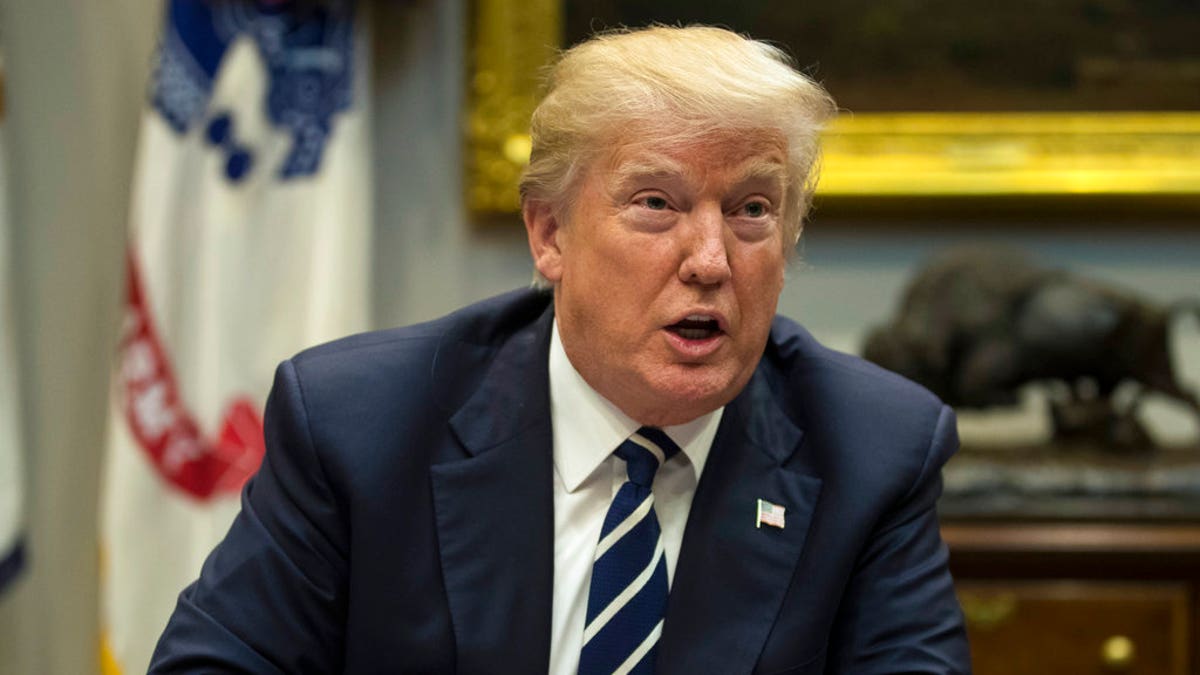
President Donald Trump speaks during a prison reform roundtable in the Roosevelt Room of the Washington, Thursday, Jan. 11, 2018. (AP Photo/Carolyn Kaster) (Copyright 2018 The Associated Press. All rights reserved.)
The theme of the World Economic Forum in Davos this month is “Creating a Shared Future in a Fractured World.” President Trump, leading the U.S. delegation, can expect a frosty welcome from the other participants, who view him as the least welcome invader of the Alps since Hannibal arrived via elephant.
Having exhibited little interest in sharing anything, the president will instead try to sell his America First vision to heads of state, economists and business titans who are almost unanimously suspicious of him. He’ll also be witness to a first-in-a-generation showdown between the leaders of Germany and France, who are vying to be recognized as the de facto head of Europe.
Trump probably doesn’t care about the warmth of the embrace he receives in snowy Switzerland. He demonstrated his indifference to being popular among foreign leaders last year, when he lectured America’s NATO allies for failing to pay their fair share of the defense coalition’s expenses. More than likely, he’ll bring his unpredictable – and pugnacious – presidential style with him, to confront an exclusive club of committed globalists.
“The president will clearly be an outsider at Davos,” says Paul J. Saunders, executive director of the Washington-based Center for the National Interest. “This is the annual gathering of the leaders of globalism, intellectually, financially, politically. It will be interesting to see how he handles himself and also what impact he has. Remember, the president is very skilled at getting attention for himself.”
Trump will have to decide whether to act like the blustery cheerleader for American business and military might, or the uninvited guest at an ultra-exclusive club who shows up without a tie.
Trump will have to decide whether to act like the blustery cheerleader for American business and military might, or the uninvited guest at an ultra-exclusive club who shows up without a tie. “It depends on what kind of mark he wants to make, and where he wants to make it – in the U.S. or internationally,” says Saunders. “The bar is relatively low. Many foreign leaders are uncertain about the president. If he comes to Davos and does something that they view as unexpected – a major initiative on trade for example – it could get positive attention.”
Used to hogging the spotlight, Trump might just find himself a sideshow to an oh-so-courteous knife-fight between German Chancellor Angela Merkel and French President Emmanuel Macron. Merkel, who has dominated European politics and dictated its policies for more than a decade, is in a weakened position after her party and its allies lost support in last year’s national elections.
Macron, the baby-faced French centrist who critics say governs with an imperial disregard for those around him, has set out far-reaching goals for the European Union, of which France is an enthusiastic backer.
“When you look at the European political stage, with Merkel now constrained, then someone who has an electoral mandate like Macron is strengthened,” says Saunders. “He’s a quite ambitious person who sees an opportunity for himself in Merkel’s troubles. But it’s a two-edged sword. France is not equal to Germany in its economic contributions to Europe. And no other nation is in a position to drive the train unilaterally.”
It is Trump, however, who will be the elephant in the room at Davos. And not because he’s a Republican.
